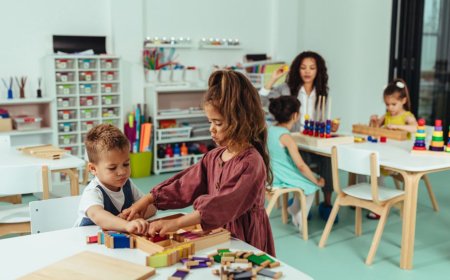The Benefits of Routine in Early Years Education
Young children thrive on predictability. From the moment they wake up to the time they go to bed, routines help them feel safe, confident, and ready to learn. In early years education, establishing a daily rhythm is more than just keeping things organised its a key part of how children grow emotionally, socially, and intellectually.
Lets take a closer look at why routine matters so much in the early years, and how the right nursery environment can support it.
Why Routine Is So Important for Young Children
Children are still learning how the world works. When their day follows a familiar pattern, they begin to understand what comes next. This sense of security helps reduce anxiety, builds trust, and allows them to focus more on learning and exploration.
Routines also support self-regulation a skill that helps children manage their emotions, transitions, and behaviours.
Key Benefits of a Consistent Routine
Here are some of the biggest ways a daily routine supports early development:
1. Builds Emotional Security
Knowing what to expect helps children feel calm and in control. When routines are predictable, children are less likely to feel anxious or overwhelmed, especially during transitions like drop-off and pick-up.
2. Encourages Independence
When children follow a routine, they start to take charge of small tasks washing hands, tidying toys, or getting ready for nap time. These small responsibilities help them gain confidence in their abilities.
3. Supports Learning and Focus
When the environment is consistent, children spend less time wondering what will happen next and more time engaging with activities and learning materials.
4. Makes Transitions Easier
Routines guide children from one activity to the next such as moving from playtime to mealtime which helps prevent resistance or emotional outbursts.
5. Creates a Sense of Belonging
Children feel part of a group when they know the shared daily routine. They understand how their actions fit into the flow of the day, creating a sense of community and cooperation.
What a Routine Looks Like in Early Years Settings
A well-balanced day in a nursery might include:
-
Arrival and free play
-
Morning circle time or group discussion
-
Snack time and practical life activities
-
Outdoor play and exploration
-
Story time or music session
-
Lunch and rest
-
Afternoon learning and quiet play
This structure can be flexible based on the childrens needs, but the overall rhythm remains consistent helping children feel secure and settled.
Supporting Routine at Home
Consistency between home and nursery helps children transition smoothly. You can support your childs routine by:
-
Having regular mealtimes and bedtimes
-
Creating calm rituals around transitions (like a goodbye hug or reading before bed)
-
Talking with your child about what to expect each day
Simple routines at home reinforce what they experience in their learning environment.
Final Thoughts
Routine may seem like a small thing, but in early childhood, it creates a strong foundation for healthy development. When children know what to expect, they feel safe, become more independent, and are better prepared to learn.
If youre looking for a nurturing environment that values both routine and child-led learning, a well-established nursery in Pinner can offer the consistency and care your child needs to thrive in these important early years.
















![Top 9 Real Estate Mobile App Developers in Riyadh, Saudi Arabia [2025 Edition]](https://www.biphoo.uk/uploads/images/202507/image_430x256_6879d0d524335.jpg)



















